After three months of pool parties and alarm clock-less mornings, it can be a challenge getting in the back-to-school groove for college students. Meet five highly respected Arizona professors who, thanks to their unique teaching styles and passion for education, are making the first day of school something to look forward to.
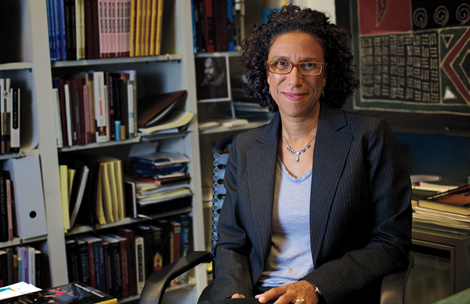
Dr. Ayanna Thompson of Arizona State University
Arizona State University’s Dr. Ayanna Thompson always saw herself growing up to be a lawyer or a businesswoman. It wasn’t until she took English courses at Columbia University that literature opened up to her.
“I loved everything I read: the aesthetics, the politics, the controversies and the critical debates,” she says. “When I realized that, I wanted to go all the way.”
After graduating from Columbia, Thompson briefly worked on Wall Street as an investment banker and eventually left to continue her education in pursuit of becoming a professor. As a recipient of a Marshall Scholarship, she received her master’s degree at Sussex University in England and went on to get her Ph.D. at Harvard University. Having primarily lived and studied on the East Coast, Thompson was ready for a change of scenery. “I wanted to experience living in the Southwest.” She worked for three years at the University of New Mexico before becoming a Sun Devil in 2004.
As a literature buff, Thompson enjoys changing students’ perception about the works of Shakespeare. She relates the plots to their own lives for a clearer comprehension, igniting shared learning with classroom discussions and debates. “Every time I enter the classroom, the students make the material new and exciting for me.”
With her vast intellect and sincere passion, a lot can be expected in the future from this ASU professor. She is looking to develop a How to Teach Shakespeare class for educators and education students. “I want to share my knowledge, techniques and resources with the teachers in the frontlines of secondary education,” she says. “It would be one small way of paying back all that I have benefited from over the years.” —E.L.
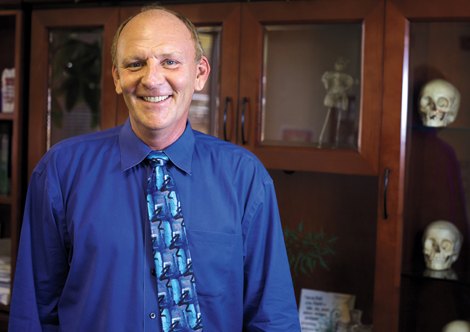
Dr. Mark Wooden of Grand Canyon University
Dr. Mark Wooden, recently elected to serve as next year’s Chair of the Greater Valley Area Health Education Center Advisory Board, calls himself “a third-generation Phoenician.” After graduating high school, Wooden didn’t go directly to college. Rather, he decided to start a family early in life. At age 30, Wooden furthered his education at local community colleges, exploring different degree options. His interest in biology led him to Arizona State University’s Conservations Biology Program where he later began his Ph.D. program in comparative and integrative physiology. After taking on some teaching opportunities, Wooden realized educating would be his new tenure in life.
Starting in 2004, Wooden has taught full-time at Grand Canyon University, in addition to establishing various health sciences programs. His dedication to his students, fellow faculty members and work ethic made Wooden more than suitable to be the dean of the university’s new College of Health and Sciences, which will open in the fall. “The new college has all the support, teamwork and focus necessary to provide an exceptional learning environment and college experience for all our students,” he says.
Wooden has left a lasting impact on GCU and will continue to do so as the new college flourishes. In addition to maintaining the university’s community feel, Wooden says, “[I] will continue to educate both students and other teachers in ways that ensure all the students we touch will grow personally and become better informed.” —E. L.
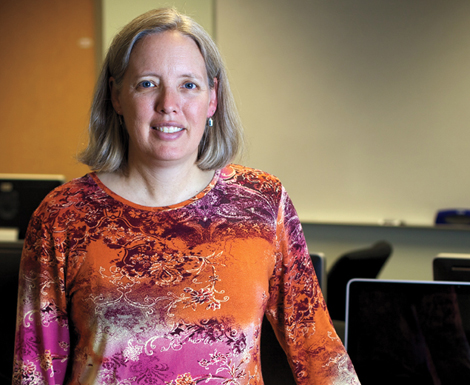
Dr. Donna Gaudet of Scottsdale Community College
For Dr. Donna Gaudet, becoming an educator was inevitable. “I come from a family of teachers…I just loved that environment.” She started teaching math at Scottsdale Community College in 1991 (her focus is now developmental math). “I left after five years…and in the fall I am starting my fourth or fifth year back at SCC. I came back to Scottsdale because I thought that SCC was a fabulous school. I really appreciate the support that we get from the administration, and I think the students feel that way too. It’s nice to be in a place where you can try new things.”
Though she was born in Chicago and raised in Arkansas, Gaudet received most of her college education in Colorado. While in school, she traveled to Scottsdale to study for a year and fell in love with the city.
Though some educators still prefer the chalkboard method, Gaudet gets students’ attention with a tool called a Livescribe pen, a handheld micro-recorder and camera that allows her to display her notes online. “[My students] see what I’ve written, and they hear my voice synchronized with the writing,” Gaudet says. “I am really into using technology.”
When she isn’t trying out new teaching tools, Gaudet is on the board of a charitable organization, Aogaah Foundation, which benefits Cambodian schoolchildren and teaches them to read and write. This year, she will swim 5.3 miles across Lake Pend Oreille in Idaho to raise funds for the nonprofit. “It’s not an organized event; just me and a friend of mine doing it to raise money,” Gaudet says. —S. Z.
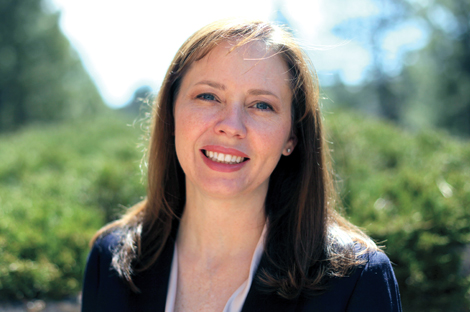
Dr. Michelle Miller of Northern Arizona University
Dr. Michelle Miller, who is a psychology professor at Northern Arizona University, realized her passion for the classroom when she was an undergraduate. “As I was working through my college career at Pomona College, I realized that, unlike many of my peers looking to get out into the real world, I couldn’t imagine leaving academic life.”
Originally from Northern California, Miller graduated from Pomona College and went on to graduate school at University of California, Los Angeles. She participated in a research-intensive program and originally planned to make research a larger part of her career than she did teaching. However, following an educational opportunity at Rice University, she found her interest in research converging with her interest in teaching.
In the fall 1999, Miller was offered an associate professor position at NAU, a university devoted to “excellence in teaching as well as excellence in research,” she says. The teaching position was “a tenure track job…perfect for what I was seeking as a postdoctoral researcher in cognitive psychology,” Miller says.
Miller also utilizes her talents as part of NAU’s course-redesign team, where she works to help make classes more dynamic and engaging for first-year students. It is intended to provide increased support and rigor for struggling students.
When Miller isn’t in the classroom, she likes spending time with her three daughters and enjoys yoga and cross-country skiing. “I am also an avid knitter and belong to a knitting group called Flagstaff Knitters in the Dark. We meet at a local wine bar not known for good lighting,” Miller says. —S.Z.
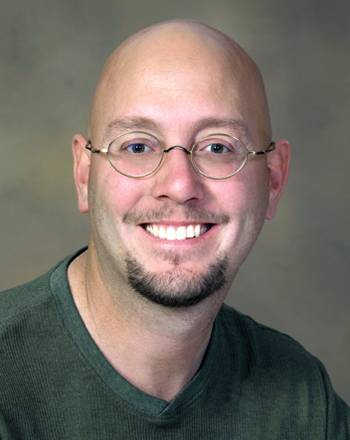
Paul Blowers of University of Arizona
From after-school clubs to in-class activities, University of Arizona engineering professor, Paul Blowers, uses every available moment to educate and motivate his students. Through his interactive teaching style, this award-winning educator has a true knack for inspiring students to learn.
Blowers understands that droning, lengthy lectures are not always the way to help students to understand a subject. For Blowers, a typical class involves discussions, time for questioning or challenging the professor, and hands-on activities to help all types of learners. “I don’t believe that lecturing is interesting because it is not interesting to me, so we have a lot of discussions,” Blowers says. “Students can ask me, challenge me. [I] approach situations how they understand, as opposed to me talking at them.”
After figuring out that a typical chemical engineering job was not intriguing to him, Blowers decided to go to graduate school to get a Ph.D. at the University of Illinois. His interest was in design engineering. “I was a teaching assistant first semester and got a teaching award. Then, [during] the second semester, I [received another award], and that pretty much decided my fate,” he says.
In 1999, Blowers made the move to Arizona and began teaching chemical engineering, among other things, at the U of A. This professor, however, does not stop educating when class ends. As the Omega Chi Epsilon faculty advisor, Homebrewer’s Club faculty advisor and father of two, Blowers’ chances to teach are never-ending. —A.P.